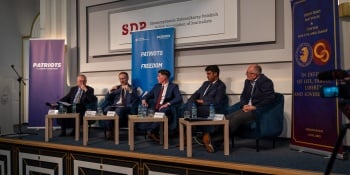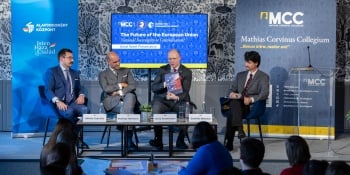Published: 04.04.2022

· The International Observation Mission has published the final report on the parliamentary elections and the referendum in Hungary.
· The mission was established by the Ordo Iuris Institute and Collegium Intermarium. It was composed of representatives of the academic world, social organizations, lawyers and journalists from Poland, Bulgaria, Spain, Croatia and Ukraine.
· The report stated that the elections and referendum were in line with national and European standards, and on the day they were held, there were no circumstances that violated the principles of free and fair voting. According to observers, the rules governing the holding and financing of elections in Hungary are similar to those of other European countries.
· The Mission's report also noted that since 2010 media pluralism in Hungary has not decreased but has increased, and the potential coverage of pro-government and anti-government media content is balanced and of roughly the same size.
· Observers recommend the Hungarian authorities to introduce changes in access to public information, in particular to shorten the waiting time for access to information.
According to unofficial results, the coalition of Fidesz and the Christian Democratic People's Party won the parliamentary elections. Simultaneously with the elections, there was also a referendum concerning, inter alia, promoting the so-called gender correction in children or sexual education provided by LGBT organizations. The required number of valid votes was not reached in the referendum and thus remains invalid.
The mission initiated by Ordo Iuris and the Collegium Intermarium university, examined for several days whether the election process was fair and democratic. It was composed of representatives of the academic world and social organizations, as well as lawyers and journalists from four European countries. Observers assessed the electoral system, campaign financing, media freedom and access, the conduct of the referendum and the functioning of NGOs in Hungary. Members of the mission met on site with representatives of the government, electoral bodies, leading media and NGOs. On the voting day, the observers controlled the work of 60 electoral commissions. The elections and referendum were also observed by the Organization for Security and Cooperation in Europe, which relied on unverified and unverifiable sources in its initial periodical report.
Following the elections and referendum, the Ordo Iuris and Collegium Intermarium mission published a report. Observers found that both votes were in line with national and international standards. The principles of directness, universality, secrecy, equality and freedom were maintained. On the day of the elections, there were also no events that would prevent the free and fair voting.
The regulations concerning the electoral system also fulfill the principles of pluralism, stability, freedom of expression and neutrality. Over the last year, no changes have been made to the electoral system that could violate them. The mission also concluded that the Hungarian election financing system is fully embedded in the overall European framework, with no significant deviations. Also, Hungarian legislation on the financing of political parties and election campaigns contains transparent and fair rules for all committees and provides for appropriate procedures in the event of violation of the rules. The number of complaints about the campaign is relatively low compared to other European countries (e.g. Spain).
The mission's observers' control also covered the situation of the media. The report noted that, as a result of the large variety of TV channels and the fragmentation of the market, Hungarian voters have a wide range of media from which to learn about the political, economic and social reality around them. The survey carried out in 2021 shows that both the media considered favorable to the government and those favoring the opposition in general are used by approx. 80 percent. recipients. Thus, the reach of potentially pro-government and anti-government content is well-balanced. Observers also highlighted practices by leading social media platforms that selectively block and limit content on political issues. The mission expressed its concern about the lack of adequate legal guarantees ensuring equal opportunities in this area.
The report also covers the question of the referendum. It states that it was conducted in a manner consistent with Hungarian regulations and in accordance with the standards recommended by the Council of Europe and the Venice Commission. The government campaigned to encourage participation in the referendum. However, the authorities did not disclose the amount allocated to this purpose. Also, 22 non-governmental organizations launched a campaign urging people to vote "four times no". In turn, 18 other organizations encouraged the vote to be invalid. This campaign was funded by George Soros and the Open Society Foundation with over $ 6.7 million.
The mission also drew attention to the role of NGOs in Hungary. The report shows that they are free to express their views and engage in public debate. The scope of their activities is varied and covers almost all aspects of social life. Observers emphasize that, in their opinion, the authorities should introduce changes to the system of access to public information. First of all, it was recommended to accelerate the access to information, which is particularly important in the case of the election process. Observers also recommend local authorities to watch over foreign entities that may attempt to unjustifiably interfere in the election process.

02.05.2025
· The Ordo Iuris Institute, the Hungarian Center for Fundamental Rights, and the Foundation of the Patriots for Europe group in the European Parliament organized a conference in W

• Representatives of Ordo Iuris took part in the second round of consultations ahead of the 58th Session of the UN Commission on Population and Development (CPD58) on global health policy.


• The European Union’s Council Conclusions on EU Priorities in UN Human Rights Fora in 2025 identify key areas of EU human rights activities at UN fora and refers to several universal human rights, such as freedom from torture and freedom of religion or belief.